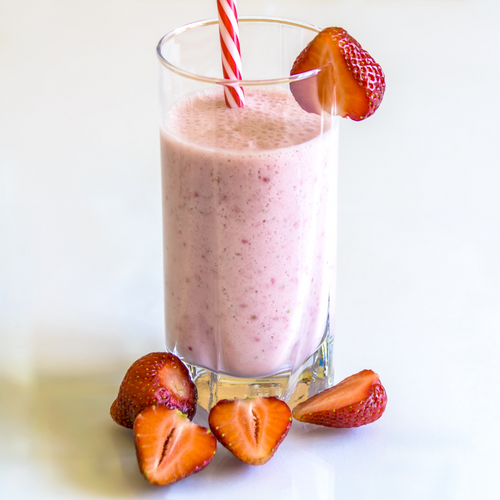What you need to remember:
- A fundamental pillar of health, sleep is essential for physical recovery, hormonal regulation and cognitive function.
- Sleep disorders can disrupt the intestinal microbiota: reduction in microbial diversity, increase in pathogenic bacteria, promoting digestive disorders (bloating, abdominal pain).
- Sleep disturbances can lead to hormonal imbalance: increased ghrelin (hunger hormone) and decreased leptin (satiety hormone), leading to overeating and digestive problems.
- Gastroesophageal reflux disease (GERD) is heartburn, with triggers such as fatty foods, citrus fruits, coffee, alcohol, spicy foods.
- Bloating is the feeling of abdominal bloating and discomfort, often related to dietary choices.
- Foods to avoid to reduce bloating: cruciferous vegetables, legumes, dairy products (if intolerant), carbonated drinks.
Sleep, the pillar of our health
Sleep is one of the most fundamental pillars of our health. It does not only rest us after a day, it plays a role in processes such as physical recovery (cellular repair, muscle regeneration), regulation of metabolism (hormone synthesis and release) and strengthening of the immune system. In addition, sleep is essential for proper brain function, particularly for sorting and consolidating cognitive information, managing emotions, as well as improving memory functions.
However, sleep disorders, and insomnia in particular, are becoming more and more common in our modern societies. They can manifest themselves in different ways: difficulty falling asleep, frequent nighttime awakenings or waking up too early in the morning without the possibility of getting back to sleep. Whether it is falling asleep late, a sleepless night or a feeling of non-restorative sleep, insomnia affects nearly 15 to 20% of the population to varying degrees.
But beyond the obvious impact on fatigue and concentration, lack of sleep can also impact other body systems, including the digestive system. Many studies are currently exploring the interactions between sleep and digestion, highlighting the potentially disruptive role of sleep disturbances on digestive function.
The impact of sleep disorders on our digestion
Sleep disturbances can have significant consequences on our digestive health. Indeed, poor quality or insufficient sleep can disrupt certain physiological processes.
Sleep disturbances can disrupt our gut microbiota
The gut microbiota is a real pillar for our health. However, this delicate balance can be disrupted by external factors, including circadian rhythm disorders, such as insomnia or shifts in the sleep-wake cycle. The microbiota also follows a kind of biological rhythm, influenced by variations in metabolism during the day and night. When this rhythm is disrupted, it can change the composition of the intestinal flora and lead to dysbiosis , i.e. an imbalance of the microbiota.
Recent research has shown that people with sleep disorders often have a reduction in microbial diversity in their gut. This decrease in diversity can promote the proliferation of pathogenic bacteria to the detriment of beneficial bacteria, thus disrupting the balance of the intestinal flora. Such dysbiosis can lead to the onset of digestive disorders such as bloating, abdominal pain, or even transit disorders.
Sleep disturbances can disrupt our hormonal balance
Sleep is a key regulator of many hormonal functions, including those responsible for appetite. Among these hormones, two play a central role: ghrelin and leptin.
Ghrelin , often called the "hunger hormone," is produced primarily in the stomach and stimulates appetite by signaling to the brain that the body needs nutrients.
On the other hand, leptin , secreted by fat cells, inhibits the feeling of hunger and promotes satiety once energy needs have been met.
When sleep is insufficient or of poor quality, this hormonal balance is disrupted. In fact, ghrelin production increases, encouraging people to eat more, while leptin levels decrease, reducing the feeling of satiety. This hormonal imbalance can lead to overeating.
In the long term, this can have adverse effects on the digestive system. By overloading the digestive tract with large quantities of food, the digestive process becomes slower and less efficient, leading to feelings of heaviness, bloating , or abdominal pain. In addition, late digestion of large meals, especially before bedtime, can cause gastroesophageal reflux , further disrupting the quality of sleep and reinforcing the vicious circle between sleep disorders and digestive disorders.
The impact of digestive disorders on our sleep
Digestive disorders can have a significant impact on the quality of our sleep. Abdominal discomfort, pain or digestive disturbances can make it difficult to fall asleep and interfere with sleep continuity.
Gastroesophageal Reflux Disease (GERD): Foods and Habits to Avoid for Better Sleep
Gastroesophageal reflux disease (GERD) is a common condition that occurs when stomach acid backs up into the esophagus, causing heartburn and discomfort. This is especially troublesome at night, as lying down makes it easier for stomach acids to back up, disrupting sleep and reducing its quality.
GERD is often triggered by dietary choices and lifestyle habits that increase pressure on the stomach or weaken the lower esophageal sphincter, a muscle that is essential for preventing reflux. When this sphincter is not working properly, stomach acid can more easily back up into the esophagus, causing unpleasant symptoms like heartburn, nighttime coughing, and even frequent awakenings.
Foods to limit to reduce GERD:
#1 Fatty foods (fried foods, cold cuts, cheese) slow down digestion and increase pressure on the stomach, promoting acid reflux.
#2 Tomatoes, citrus fruits (lemon, orange) and acidic fruit juices irritate the esophagus and increase stomach acidity.
#3 Coffee, black tea, caffeinated sodas relax the esophageal sphincter, facilitating reflux.
#4 Alcohol weakens the esophageal sphincter, while carbonated drinks increase pressure in the stomach.
#5 Hot spices, such as chili pepper, pepper, and mustard, irritate the stomach and worsen GERD symptoms.
Tips to limit GERD before bed:
#1 Eat your last meal 2-3 hours before bed: This allows your stomach to digest properly before going to bed.
#2 Elevate the head of the bed: Sleeping with your head elevated helps prevent acid from flowing back up into your esophagus during the night.
#3 Avoid tight clothing: Clothing that is too tight around the waist increases abdominal pressure, making reflux easier.
#4 Limit smoking and alcohol: Both of these factors weaken the esophageal sphincter and increase stomach acidity.
Bloating and Digestive Discomfort: Foods and Habits to Avoid for Better Sleep
Bloating is a common digestive symptom, characterized by a feeling of bloating and pressure in the abdomen. It usually occurs due to a buildup of gas in the intestines or incomplete digestion, which can cause significant discomfort, especially at night. Bloating is often associated with poor digestion, food intolerances or an unbalanced intestinal flora.
When bloating occurs before bed, it can disrupt sleep by causing abdominal pain, a feeling of heaviness, or the need to frequently change positions to try to relieve the discomfort.
Foods that cause bloating:
#1 Cruciferous vegetables: Vegetables like broccoli, cabbage, cauliflower, and Brussels sprouts contain complex fiber and carbohydrates (raffinose) that are difficult for the body to digest. They ferment in the intestine, producing gas. Avoid eating them raw.
#2 Legumes: Peas, lentils and beans also contain fiber and indigestible carbohydrates (oligosaccharides) that ferment in the intestine, promoting gas and bloating. Their effect on digestion can be reduced by soaking them before cooking.
#3 Dairy: People who are lactose intolerant do not produce enough lactase, an enzyme needed to digest the sugar in dairy products. This poor digestion causes bloating, gas, and sometimes diarrhea.
In case of intolerance, avoid milk, cheese, and possibly yogurts (depending on tolerance). Prefer lactose-free products based on vegetable milks.
#4 Foods high in insoluble fiber: Although fiber is essential for healthy digestion, excess insoluble fiber, found in whole grains and some fruit and vegetable skins, can slow digestion and cause bloating.
#5 Carbonated drinks and sweeteners: Carbonated drinks contain carbon dioxide, which causes gas to form in the digestive tract. Additionally, artificial sweeteners like sorbitol and xylitol are poorly absorbed by the intestines and can cause bloating and cramping.
Tips to avoid bloating before bed:
#1 Eat lighter in the evening: opt for lighter meals that are especially easy to digest. Choose cooked vegetables, lean proteins (chicken, fish) and complex carbohydrates (brown rice, quinoa).
#2 Avoid trigger foods: Limit the consumption of foods known to cause bloating such as those mentioned above.
#3 Avoid carbonated drinks: Carbonated drinks can contribute to the formation of gas in the stomach. Opt for still water or digestive herbal teas, such as mint or ginger.
#4 Eat slowly: Take the time to eat and chew your food well. This helps reduce air ingestion, and aids digestion.
#5 Finish eating at least 2-3 hours before bedtime: This allows your body to digest food properly and reduces the risk of bloating during the night.
How to improve your sleep with DIJO products?
Sleep Focus
At DIJO, we have developed Focus Sommeil, a complex enriched with melatonin and plants known for their benefits on sleep and falling asleep. We have added magnesium to make it a synergistic formula. Our Complex contains valerian, a plant known to contribute to optimal relaxation and its ability to help maintain natural sleep. We have coupled it with melatonin, a hormone that helps reduce the time it takes to fall asleep and can also help alleviate the effects of jet lag.
Sources:
[1] Wang Z, Wang Z, Lu T, et al. The microbiota-gut-brain axis in sleep disorders. Sleep Med Rev. 2022;65:101691. doi: 1016/j.smrv.2022.101691
[2] Li Y, Zhang B, Zhou Y, et al. Gut microbiota changes and their relationship with inflammation in patients with acute and chronic insomnia. Nat Sci Sleep . 2020;12:895-905. doi: 2147/nss.s271927
[3] Institut Pasteur, Marseaud P, Deciphering a direct dialogue between the intestinal microbiota and the brain
[4] C Orr W, Fass R, Sundaram S, et al. The effect of sleep on gastrointestinal functioning in common digestive, The Lancet. June 2020, DOI: 10.1016/S2468-1253(19)30412-1















